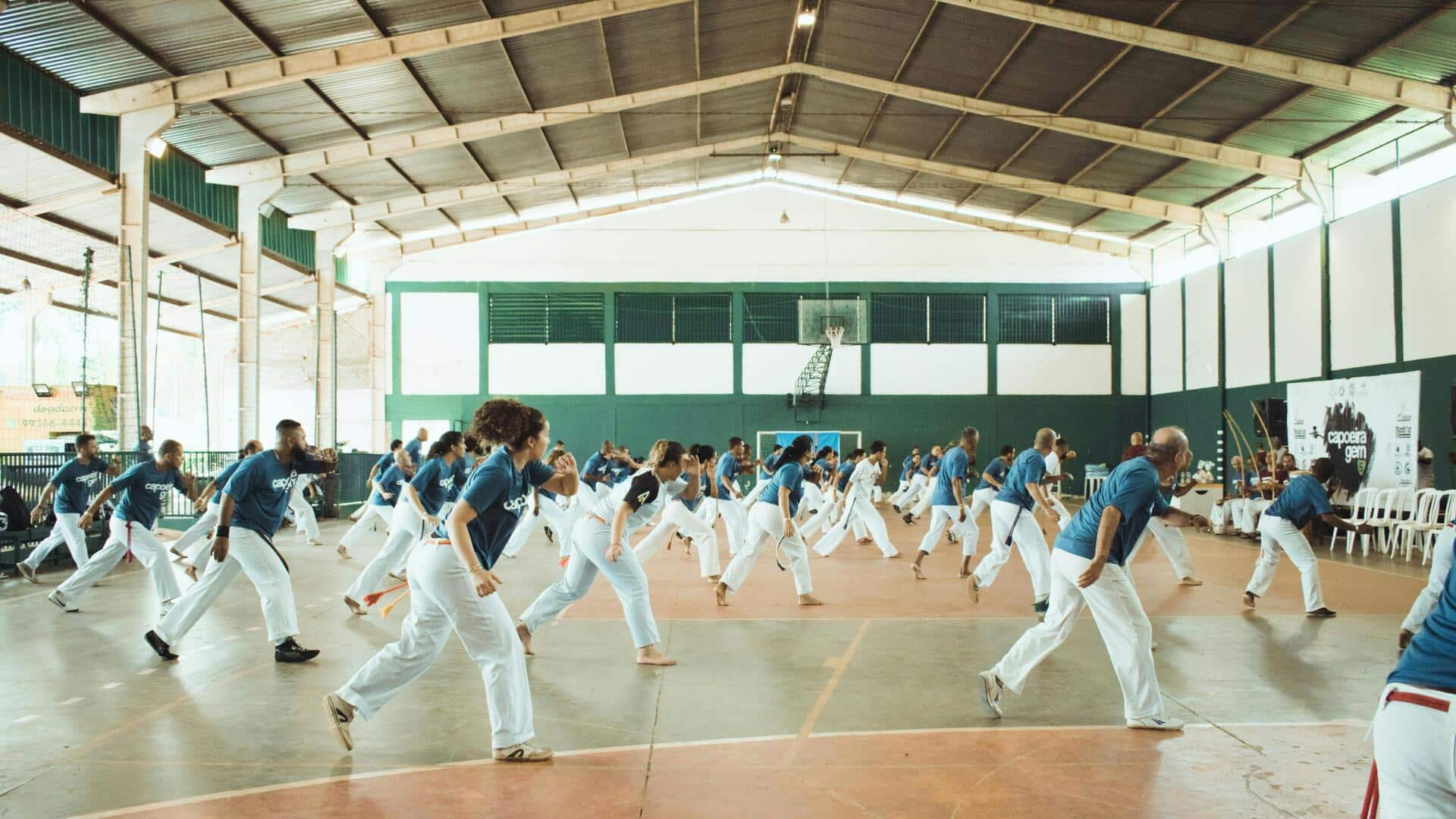
Capoeira: The Brazilian art where dance meets martial arts
What's the story
Capoeira is a Brazilian martial art that blends elements of dance, acrobatics, and music. It was developed by African slaves in Brazil as a way to disguise combat training. Today, capoeira is a cultural phenomenon practiced worldwide. The art form is characterized by fluid movements, rhythmic music, and a strong sense of community. Practitioners engage in a game called roda, where they showcase their skills and creativity.
#1
Historical roots of Capoeira
Capoeira traces its roots to the African slaves who were not allowed to practice martial arts openly. They disguised their training as dance to avoid punishment. Over the years, capoeira evolved into a symbol of resistance and cultural identity for Afro-Brazilians. It was banned at various points in history but continued to thrive through secret gatherings and underground practices.
#2
The role of music in capoeira
Music is an integral part of capoeira, setting the rhythm and mood for the game. Traditional instruments like berimbau, atabaque, and pandeiro are used to create unique sounds that guide players' movements. Songs sung during capoeira sessions tell stories or convey messages related to history or philosophy. The musical aspect keeps the cultural heritage alive while enhancing the experience for participants.
#3
Physical benefits of practicing Capoeira
Practicing capoeira offers a whole range of physical benefits, from improved flexibility to enhanced cardiovascular health. The acrobatic moves require strength and agility, which help tone muscles all over the body. Regular practice can improve coordination and balance while reducing stress levels through its dynamic nature. It's an engaging way to stay fit without the monotony of traditional workouts.
#4
Community aspects of Capoeira
Capoeira fosters a strong sense of community among its practitioners, known as capoeiristas. These groups often hold events called batizados, where new members are initiated into the art form with ceremonies that emphasize respect and tradition. The camaraderie built within these communities extends beyond training sessions or performances, creating lifelong friendships across cultural boundaries worldwide.